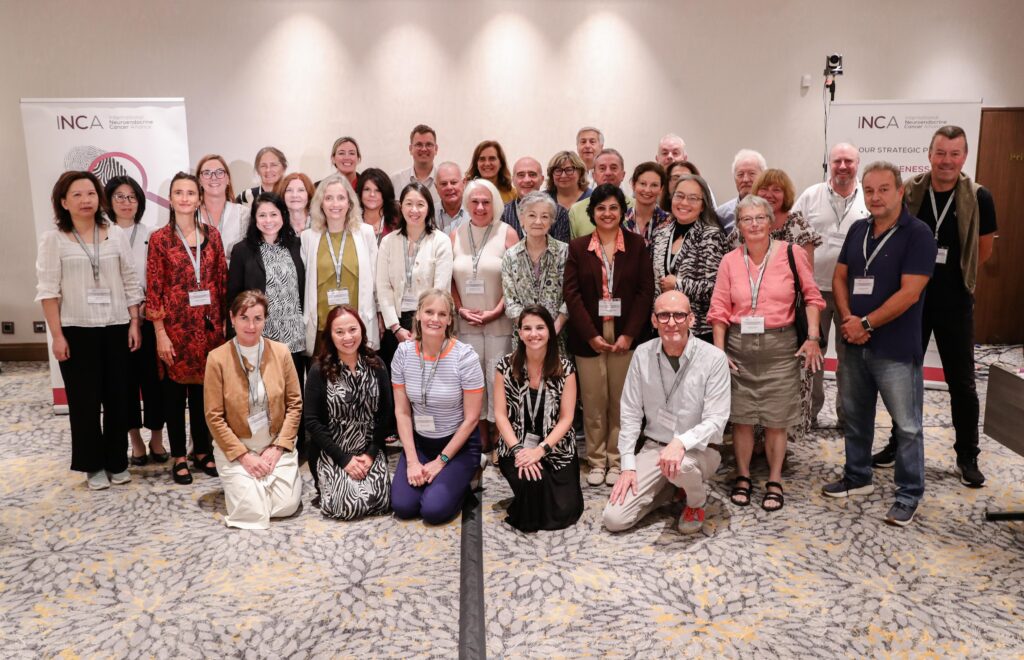
By Elyse Gellerman, CEO
Representatives from 25 neuroendocrine cancer advocacy groups gathered earlier this month in Sofia, Bulgaria, for the 13th INCA (International Neuroendocrine Cancer Alliance) Summit. INCA is the global voice of NET patients, offering educational resources in 12 languages, encouraging healthcare providers to “Think NENs” when evaluating symptoms, and working to improve access to treatment worldwide.
I was honored to represent NETRF at this important meeting and to share our efforts to educate patients and raise awareness of neuroendocrine cancer among non-NET specialists. Spending time with colleagues from around the world was both energizing and inspiring. While each country faces its own challenges, we are united by common goals: faster diagnosis, better treatments, and improved quality of life for people living with neuroendocrine cancer. Together, we learn from one another and strengthen our collective impact.
 One of the most urgent challenges we face is delayed diagnosis. Too often, by the time people receive a NET diagnosis, their cancer has already spread. At the Summit, I had the opportunity to present NETRF’s Pay It Forward pilot program, created to address this issue. Through this initiative, patients who requested a copy of our Neuroendocrine Cancer Guide received two—one for themselves and one to share with their primary care provider or community physician. Along with the Guide, physicians received a letter with links to NETRF’s NET Knowledge Center and INCA’s THINK NENs educational module.
One of the most urgent challenges we face is delayed diagnosis. Too often, by the time people receive a NET diagnosis, their cancer has already spread. At the Summit, I had the opportunity to present NETRF’s Pay It Forward pilot program, created to address this issue. Through this initiative, patients who requested a copy of our Neuroendocrine Cancer Guide received two—one for themselves and one to share with their primary care provider or community physician. Along with the Guide, physicians received a letter with links to NETRF’s NET Knowledge Center and INCA’s THINK NENs educational module.
The idea was simple: empower patients to help educate their healthcare providers. Early survey data shows encouraging results—of those who shared the second copy, more than half (55%) gave it to their primary care doctor or local oncologist. These are the very professionals who are often the first point of contact and can play a critical role in recognizing NETs sooner.
NETRF is deeply grateful to Harry Proudfoot and the Walking with Jane Foundation for supporting this program. Their generosity helps us take meaningful steps toward earlier diagnosis and better outcomes for patients everywhere.
The Summit was a tremendous example of how we are stronger together. The neuroendocrine cancer community should take comfort in the knowledge that patient advocates around the world are working on your behalf.
Request our Neuroendocrine Cancer Guide in print or as a PDF.
